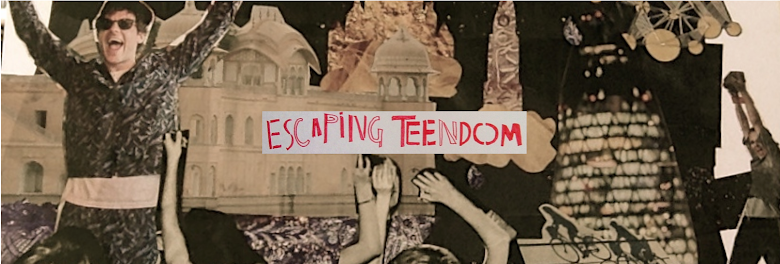A Serious
Man (2009)
 This film
is prefaced by an intriguing Jewish fable about the multiple Rabbis. With the
dialogue in Yiddish (we were deciphering whether it was Polish, Russian, German
or even French?) and an eerie prevailing atmosphere, it sets the stage for a
1960s comedic tragedy, exploiting the paranoia and self-deprecating attitude of
a Jewish community in America. Parodying the uptight personality of American
Jews is a subject that has to be portrayed sensitively however Joel & Ethan
Cohen can take liberties as the film mirrors their world; being Jewish kids
also growing up in the 60s, this community is a product of memory and
imagination. These directors are not afraid of being disliked.
This film
is prefaced by an intriguing Jewish fable about the multiple Rabbis. With the
dialogue in Yiddish (we were deciphering whether it was Polish, Russian, German
or even French?) and an eerie prevailing atmosphere, it sets the stage for a
1960s comedic tragedy, exploiting the paranoia and self-deprecating attitude of
a Jewish community in America. Parodying the uptight personality of American
Jews is a subject that has to be portrayed sensitively however Joel & Ethan
Cohen can take liberties as the film mirrors their world; being Jewish kids
also growing up in the 60s, this community is a product of memory and
imagination. These directors are not afraid of being disliked.
The style of this film is one seen
in the works of Wes Anderson, Spike Jonze and Jared Hess (director of Napoleon
Dynamite). It is awkward, subtly mimicking, direct and the tones and setting is
neutral. It is easy for the characters to fit into the neutral story/setting
like clockwork rather than emerge as the Hero. Perhaps Jews don’t have Heroes, just pawns following down Ha’Shem’s path. 1960 is created so explicitly you come out the cinema believing
you were watching this in the time. Its extremely inviting – most sets are shot
face on and at eye level so they seem open – like you are inside and the
awkward atmosphere is due to the audience’s intrusion into intimate affairs like discussions of divorce and at ‘Get’ or private conversation with head Rabbi Marshak himself.
 Joel and Ethan create a paradox;
they show the world what is behind the dispassionate façade of a Jew yet in the
story the father (main character Larry Gopnik Michael Stuhlbarg) who is untrustworthy of the
world outside the community due to experiences. He lives next to a redneck who
is intruding on his land. He feels constrained by his job and family – his
opinions of his ineffective life subdue the nonchalant tones. He is stagnating
but also at a crossroad.
The directors weave in the uncertainty principal
neatly into the film. This is not just for the characters but allows the film
to take unexpected twists and forces you to question your own life.
Joel and Ethan create a paradox;
they show the world what is behind the dispassionate façade of a Jew yet in the
story the father (main character Larry Gopnik Michael Stuhlbarg) who is untrustworthy of the
world outside the community due to experiences. He lives next to a redneck who
is intruding on his land. He feels constrained by his job and family – his
opinions of his ineffective life subdue the nonchalant tones. He is stagnating
but also at a crossroad.
The directors weave in the uncertainty principal
neatly into the film. This is not just for the characters but allows the film
to take unexpected twists and forces you to question your own life.
We pity the Jews just as much as
they pity themselves. In history they have been the scapegoats and they almost accept their fate
by making themselves exclusive to their race and religion: Jew school ect.
Larry Gopnik believes all his problems can be solved by discussion – conversation
with God’s prophets – although this film
hilariously questions their usefulness. Their traditions are age old and so are
the people that uphold these traditions the most; the young generation is more
rebellious, tainted by the surging youth culture in the 1960s. This film is
poignant, heartfelt and the best is the little footnote: No Jews were hurt
during the making of this film.****








